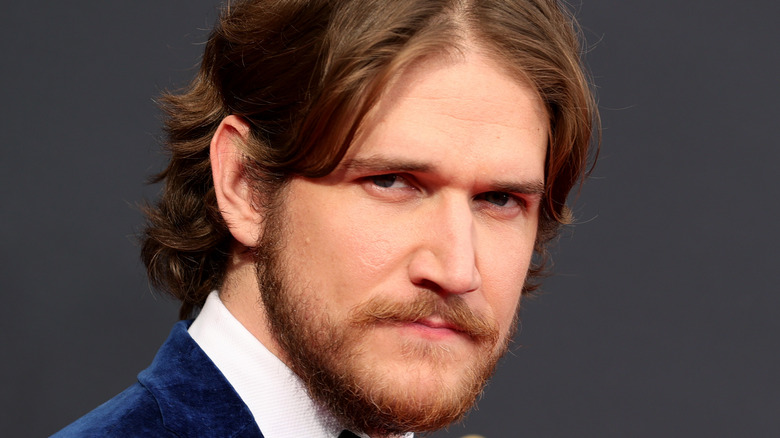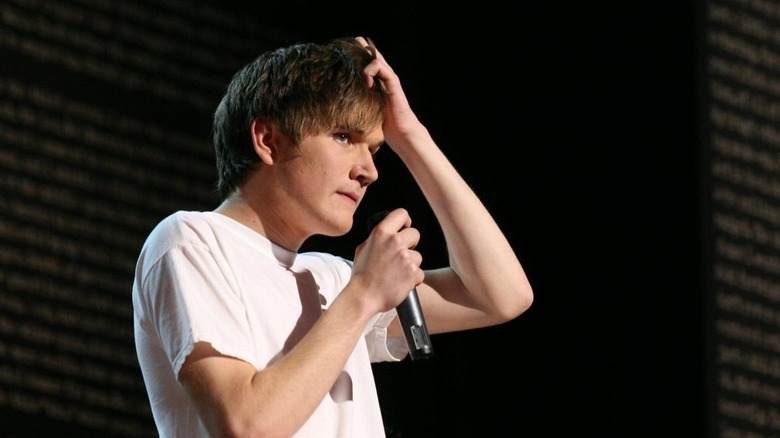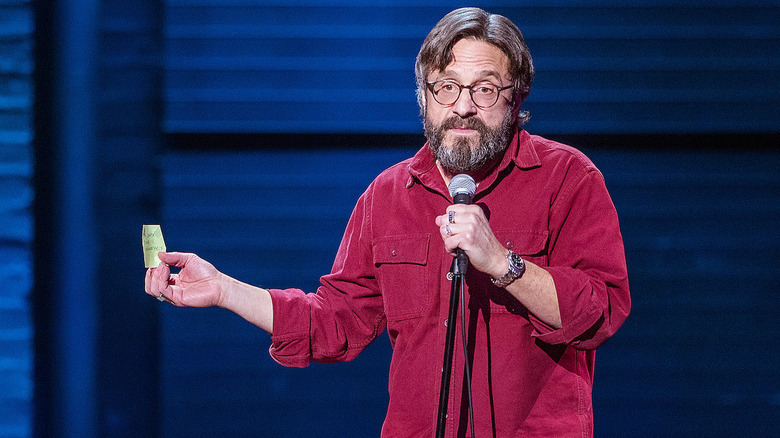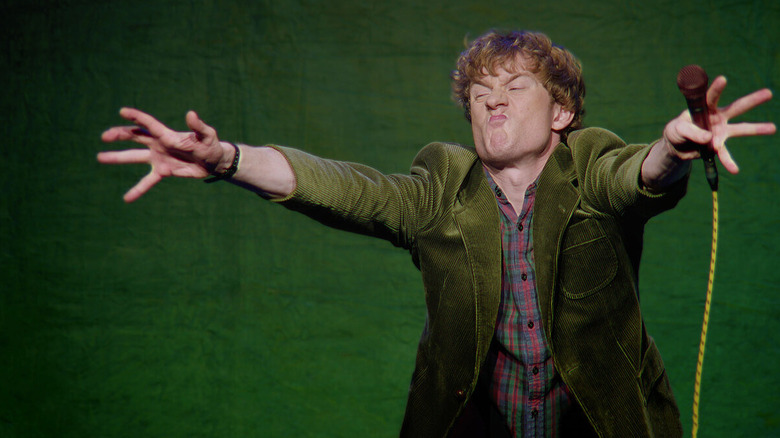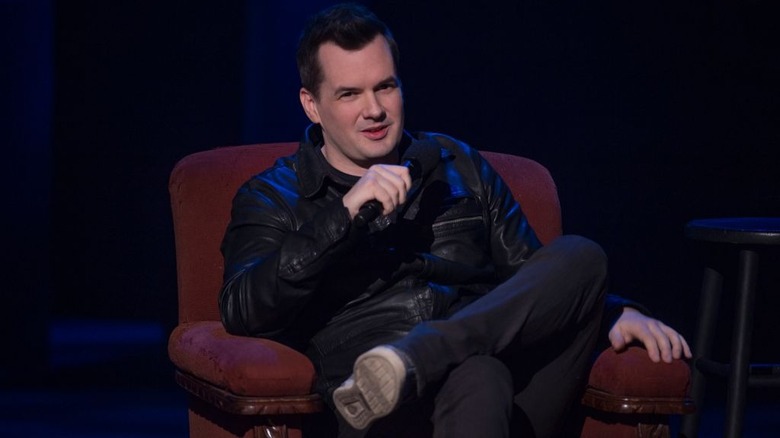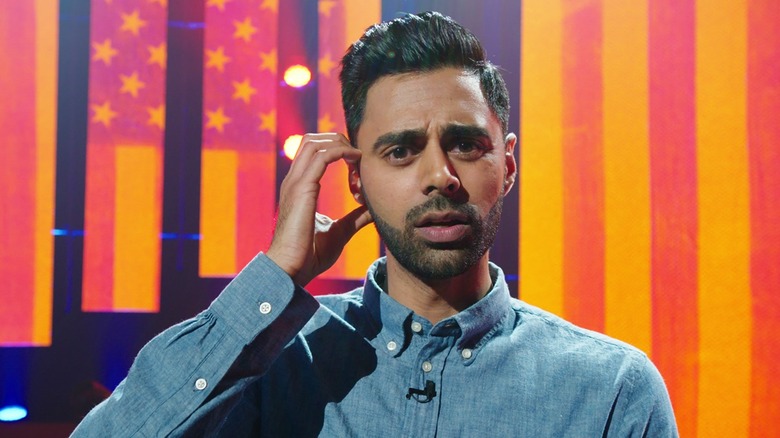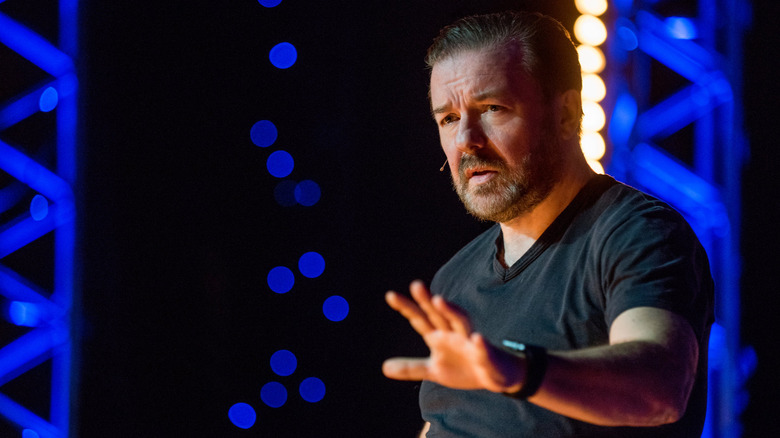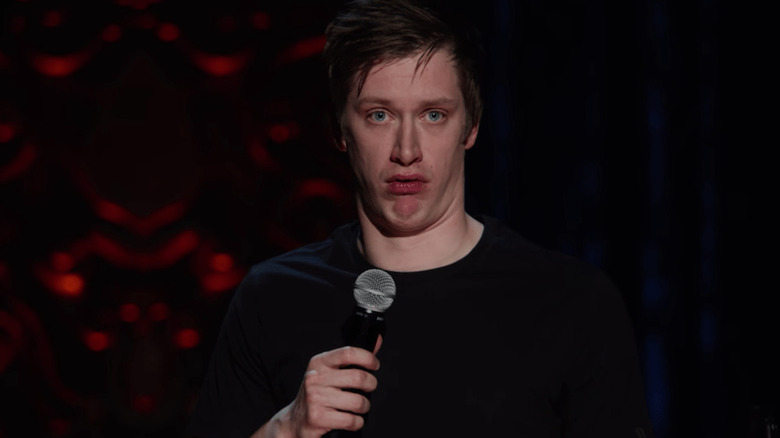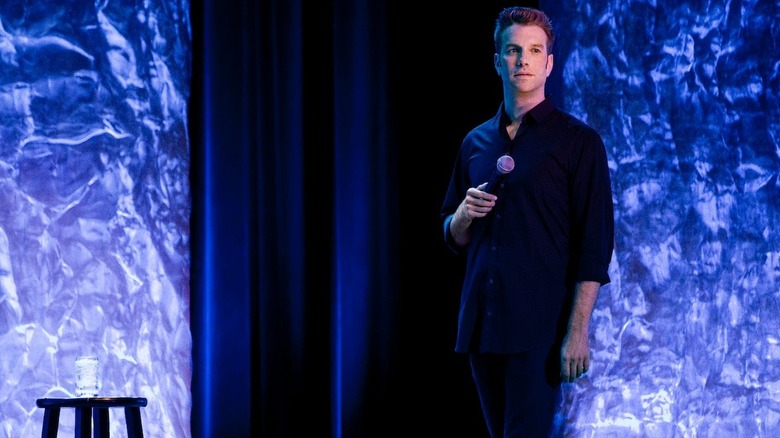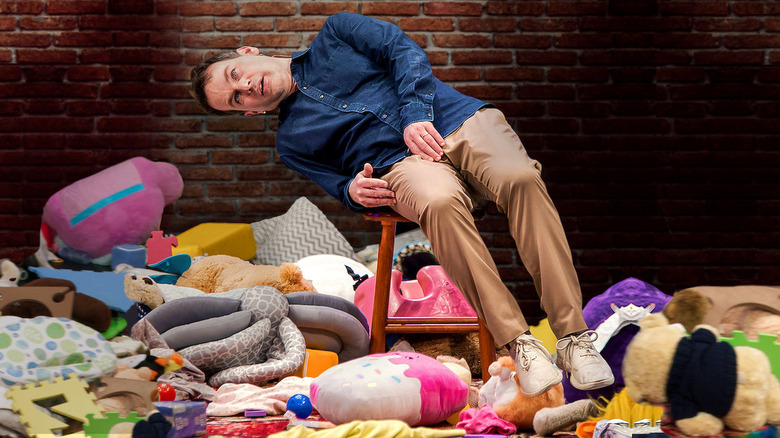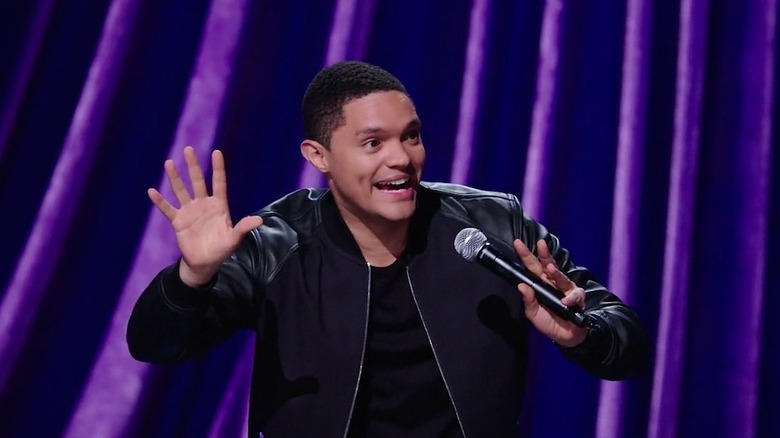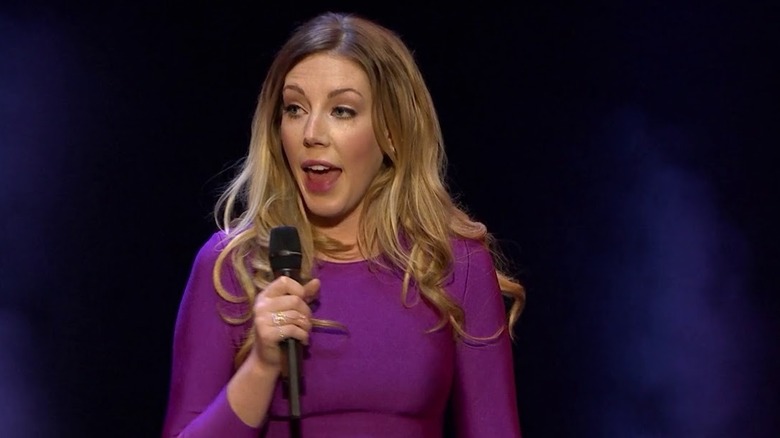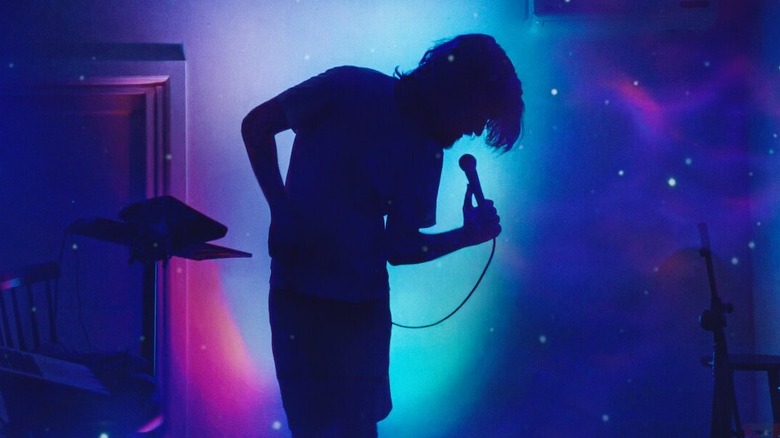The Smartest Netflix Stand-Up Comedy Specials
The stand-up comedy genre has evolved and changed a lot since its conception. These days, it's not enough to just walk out on a stage and tell the audience a bunch of random jokes. You've got to have integrity, relevance, a cohesive structure, and most of all, creativity and wit. Sense of humor is a vast spectrum, but creating distinctively clever and funny material and having the skill to pull it off effectively is what separates average comedians from the greats.
Thankfully, Netflix embraces all sorts of talents and frequently gives a chance to out-of-the-box stand-ups to blossom into something unique. The streaming service provides unprecedented artistic freedom and offers a wide selection of comedy specials: incisive, scandalous, political, sentimental. Anything you might — or might not — think of, Netflix has it; it's one of the unbeatable qualities of the platform.
But the truly remarkable and most memorable specials are the ones that make us think over and over again. Whether they raise provocative arguments, make social commentary on contemporary culture, or move us with personal stories, they do it with an astonishing intelligence only the best ones have. Here's our list of the brightest Netflix stand-up comedy specials so far.
Bo Burnham: what.
Bo Burnham's second stand-up special, "what.," is truly a work of genius. Whenever you watch him perform, you know it's going to be a show. His inventive ways of using technology are as gimmicky as it gets — perhaps the furthest from traditional stand-up — but the results are mind-blowing. In "what," he experiments with introspective comedy, miming for perfectly timed sounds and his own narration, singing and rapping about controversial subjects, reading weird and inappropriate poems, and creating a mix of gags involving flamboyant tricks.
It's a somewhat tumultuous production, but he keeps it cohesive and neatly structured all the way. He combines his stage persona with his real self, exploring thoughts and ideas about performing, insecurity, and mental health struggles. His segues are fast, forcing the audience to keep up with his quick thinking, which is not always easy to follow. He breaks barriers and regular expectations, frequently changing the pace but leaving enough breathing space for the crowd to catch up. Yet what really makes this gig brilliant is his keen awareness and analysis of himself. One moment, he's self-criticizing, and the next, he's praising his own brilliance. It's an effective self-deprecating routine brought to climax in a finale that's one of the best-crafted endings to a comedy show ever. Burnham's style isn't for everyone, but he clearly proves why he became one of the most popular and celebrated comedians for younger audiences.
Marc Maron: Too Real
Marc Maron is a veteran in the stand-up field — he's been doing comedy since the late '80s and has a long-standing reputation on television. In his 2017 Netflix gig, "Too Real," he addresses the election and Donald Trump's early presidency, why he's hung up on mortality, and his experience watching the Rolling Stones on what he thought was their last stadium tour.
He combines humor with strong critical opinions about society and how technology consumes our free time faster than ever. Despite being a glass-half-empty type of guy, Maron plants positivity in his material even when he jokes about how aging makes most of his days miserable. Whether he talks about made-up streaming platforms, fake documentaries, dying, or purchasing a hat, he turns it into delightful entertainment. Although some of his bits sound improvised and spontaneous due to his perfect timing and execution, "Too Real" definitely deserves to be called one of the wittiest stand-up specials on Netflix.
James Acaster: Repertoire
James Acaster is a master of alternative comedy. "Repertoire" is a collection of his four one-hour-long specials that are strongly connected and feed off of each other's storylines, thanks to a carefully crafted narrative. In them, Acaster introduces his unique way of thinking — analyzing and dissecting trivia — and takes our expectations in a completely different direction with every anecdote and peculiar routine. He forces us to see the most ordinary situations in an entirely new light.
Regardless of whether he talks about a night out with the lads, jury duty, the Loch Ness Monster, or his mentally debilitating battles with performing, he never takes the easy route. His quirky style, fascinating stage persona, and uncanny approach to comedy are an absolute joy. Thanks to his unusual method, "Repertoire" is a perfect example of how a comic can use savvy material and structure its elements refreshingly. He makes the gigs feel like a compelling show rather than a well-practiced list of jokes. Essentially, Acaster is living proof that stand-up comedy can be a much more complex, nuanced, and wittier artform than we think.
Jim Jefferies: Freedumb
Although Jim Jefferies often claims he gets more credit for his material than he deserves — and that he's more successful than he should be — he's really underselling himself. In his two-decade-long career, he perfected some excellent and sharp routines that made him famous for a reason.
In his second Netflix special, "Freedumb," Jefferies is at the top of his game. He might be one of those offensive, foul-mouthed, and inappropriate comedians, but no other comic grippingly raises arguments as convincingly as he does using lesser-known facts, strong talking points, and common sense. He tackles sensitive subjects such as racism, freedom, gun control, religion, euthanasia, and immigration. Whether you agree with him or not, one thing happens for sure: he provokes you into thinking. His performance isn't a Ted Talk — he emphasizes that early on — but his material powerfully conveys and mocks cultural beliefs and goes beyond simply making the audience laugh. Not that he lacks uproarious punchlines, though — there's a bunch of them — but the thoughts he evokes are what will stay with you long after you finish his one-hour-long special.
Hasan Minhaj: Homecoming King
Hasan Minhaj's first Netflix special, "Homecoming King," is more of a play than a comedy show. He creates the sense of watching a film or reading a book and captivates our attention with a gripping personal story about his childhood and early years as a small boy of immigrant parents in America. Following a dramatically constructed script with flawlessly timed plot points, he addresses his past challenges with racism, heritage, religion, and relationships. He knows how to make the crowd invest emotionally and relate to the difficulties he had to overcome, and his routine works because he's a great storyteller who uses call-backs and builds up punchlines effortlessly.
"Homecoming King" is a brutally honest and vulnerable piece of work, which makes us contemplate and cry just as much as it makes us laugh. It's a phenomenal and heartfelt journey based on the cornerstones of Minhaj's life.
Ricky Gervais: Humanity
After being away from the stage for seven years, Ricky Gervais returned with a bang of a special in 2018. "Humanity" begins with Gervais bragging about success, as most of his previous gigs do. But after a quick warmup, Gervais continues to do what he does best: making fun of the most sensitive topics imaginable.
Gervais gives us a well-detailed list of reasons why he doesn't have kids, how the media tries to alienate him as a celebrity, and the power of freedom of speech. As always, his arguments are rock-solid — backed up with scientific facts — yet he can humble himself when he's required to sympathize with the audience. What makes his performance outstanding, though, is his passion for storytelling and jokes. Since Gervais knows the art form inside and out, he's always a step ahead of the viewers, and he uses his knowledge to make the most of the special without worrying about boundaries or irreverence. He's aware of the triggers and backlash but still goes to the forbidden territory because that's where the gold lies for many comics. If you don't like him, this isn't the gig to change that, but if you're already a fan, Gervais delivers the kind of stuff you dig him for.
Daniel Sloss: Jigsaw
Scottish comedian Daniel Sloss' "Jigsaw" is his second special on Netflix. In it, he shares intriguing analogies about love, the meaning of life, and relationships. Based on an explanation his dad gave him when he was 7 years old, Sloss tells the idea that every human being is working on their own jigsaw puzzle in life, but none of them know what image they're trying to make. He explains that we all have the four corners — family, friends, hobby, job — but at the center, the main missing piece of the puzzle is the partner piece. And unless we find that person, we can never feel whole or fulfilled.
Sloss challenges the notion that all of us are raised to believe: that we have to be with someone to be truly happy. So to reach happiness, we often try to force someone into our lives, even if that individual doesn't fit into our jigsaw. He says, "We have romanticized the idea of romance, and it's cancerous." It's a poignant, dense, and convincing bit — even if it's kind of depressing — that urges the audience to internalize their own thoughts. Not many comedians successfully challenge our belief systems, yet Sloss finds a way to do so, making his unconventional performance one of the smartest on Netflix by far.
Anthony Jeselnik: Thoughts and Prayers
If there's a comic with the goal of being the most baffling, offensive, and politically incorrect comedian out there, it's Anthony Jeselnik. His work is too dark even for some hardcore fans, but that doesn't mean it doesn't require a high level of intellect. In fact, it's the opposite: To get away with making fun of some of the most taboo subjects, Jeselnik has to create a context and atmosphere in which his humor becomes acceptable, certainly earning the 18+ rating.
In "Thoughts and Prayers," Jeselnik aims to be the worst person in the room. He makes himself the center of almost every horrendous joke he tells about pedophilia, abortion, rape, assault, and even murder. When he isn't the target of a vicious pun, his family members usually are, and to make it worse, he shares how terrible and ignorant they are. Of course, the whole show is an act of making up horrific things that fit his awful stage persona. His approach is a bold and innovative way to use dark comedy, but that's why he's one of the most distinctive and sharp-witted stand-ups on the field.
Mike Birbiglia: The New One
Similar to Hasan Minhaj's "Homecoming King," Mike Birbiglia's latest special is an impeccably constructed one-man show — not just a generic stand-up gig by any measure. "The New One" introduces the story of Birbiglia's first child, Oona, and why he didn't want to have kids in the first place. He walks us through the emotional rollercoaster he went on and lists all of the reasons for changing his mind about becoming a father.
It's a brilliantly told and executed routine, and at one point, Birbiglia turns the stage into his own home, using his own belongings to create an even more personal experience for the viewer. He employs flawlessly timed call-backs and one shocking trick that scares the audience to death for a brief moment. Essentially, besides being hilarious and quirky, he wins over our hearts with an earnest, empathetic, and hysterical show that deserves to be mentioned among the best stand-up specials on Netflix.
Trevor Noah: Afraid of the Dark
In 2017, after years of doing comedy, Trevor Noah's popularity exploded worldwide with his first Netflix special, "Afraid of Dark." In it, he showcases his vast cultural and historical knowledge, shares observations about immigrants, recreates historical events, and dissects various types of accents. It's an incredibly convincing and amusing performance, but what makes it different is his spot-on analysis and breakdown of people and places. His ability to impersonate Indians, Russians, or famous figures like Nelson Mandela and Barack Obama is superb.
Noah's intelligence and perpetual willingness to learn and improve make him a likable and confident performer. It's a pleasure to listen to him on stage because he isn't just entertaining the audience but also educating them. It's not a coincidence that TIME magazine named him one of the 100 most influential people in the world in 2018. In "Afraid of the Dark," he lets us take a peek at his brilliance while also demonstrating how humbled he is by the love of his audience.
Katherine Ryan: In Trouble
Katherine Ryan's Netflix special, "In Trouble," is as traditional as stand-up gets. Yet with her raunchy and explicit style, she's far more clever and humorous than many of her peers. During "In Trouble," she talks about her thoughts of getting older, dating terrible men, and why she left her much-hated Canadian hometown and moved to England. She also takes a stab at Bill Cosby and rapists in general — interacting with the crowd when you least expect it — and mocks their ridiculous defenses while highlighting why women victims often fear coming forward. She even criticizes and makes fun of Taylor Swift for her white privilege.
But what really makes her act effective is the flow and skill she uses to smoothly segue into taboo topics and roast the hell out of celebrities — and everyone else she knows, including her family and herself. She speaks of her parents, siblings, and daughter in a love-hate kind of way, but by the end of the show, it becomes clear how much she actually adores them. Ryan's vivid and often painfully sincere humor is an absolute treat, and "In Trouble" excellently demonstrates her style.
Bo Burnham: Inside
Last year, Bo Burnham surprised everybody by releasing a 90-minute-long special he wrote, directed, and shot during the toughest months of the pandemic. And he did it in the guest house of his Los Angeles home without an audience or a film crew. Aptly named, "Inside" is a beautifully dark work of a hyperactive, constantly thinking and analyzing mind. He welcomes us in his world, which is stimulated by an endless loop of content — the curse of the modern age — that has essentially chased him into overwhelming anxiety. That's a recurring theme — or more likely a symptom — that forced him to quit performing live comedy a few years ago, when he was experiencing panic attacks before and during gigs.
"Inside" often feels chaotic and messy, but that's by design, and he even warns us about this in the beginning. It's a masterfully constructed audio-visual journey about internalized thoughts, mental health, and the constant pressure artists like him face on a regular basis. His special is more of a grotesque and thought-provoking picture about the younger generations' difficulties than a traditional stand-up that simply aims to make us laugh. But that's why it's an outstanding and remarkable form of entertainment that also has a healing effect to help us cope with such bleak and depressing times — or just our own harrowing minds.
